
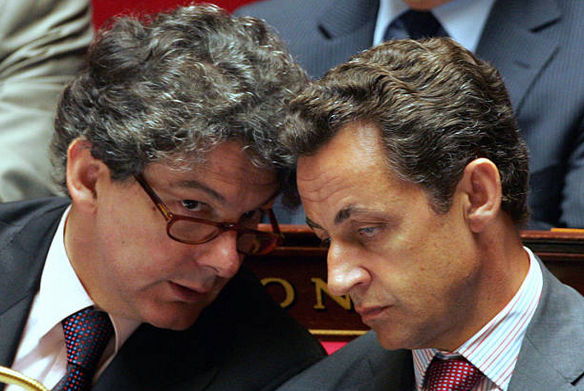
Thierry and Nicolas: despite a promising start, the bromance turned sour in the end.
Thierry and Nicolas go back a long way to the days when they were ministerial colleagues under the presidency of Jacques Chirac between 2002 and 2007.
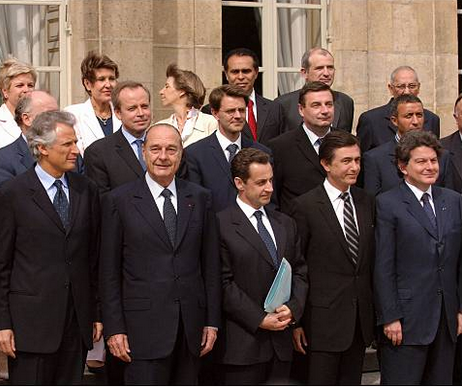
President Jacques Chirac with Prime Minister Dominique de Villepin and his cabinet, including Sarkozy and Breton in the front row

"Sarko", Minister for Silly Faces who became President in 2007.
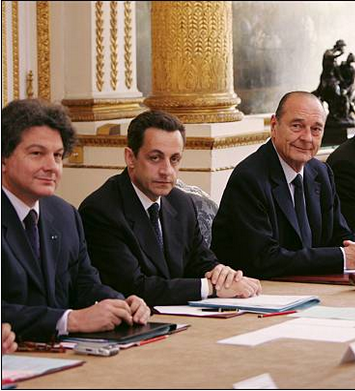
Colleagues at the cabinet table (2005): Thierry Breton (Minister for the Economy), Nicolas Sarkozy (Minister for the Interior) and President Jacques Chirac
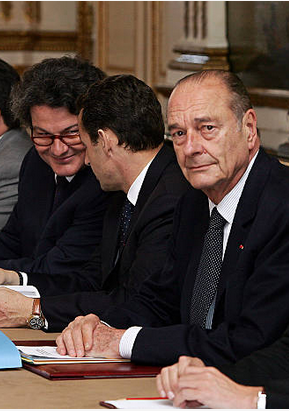
Thierry and Nikolas having a cordial collegial tête-à-tête.
Uncle Jacques looks on with a furrowed brow.
"What are those little rascals up to this time?"
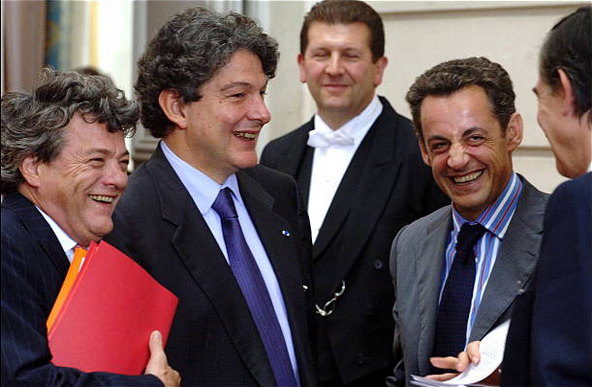
Thierry and Nikolas enjoying a good chortle together with their ministerial colleagues.
Who are they planning to shaft this time?
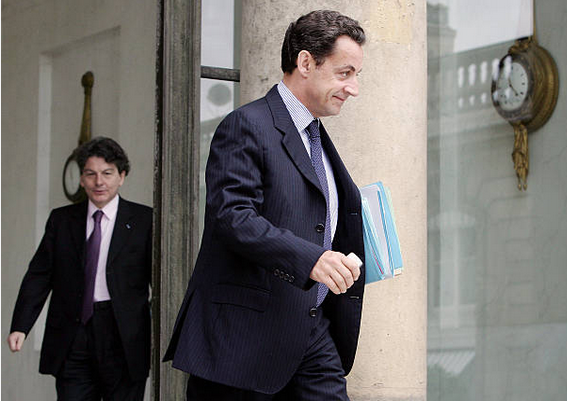
Catch-me-if-you-can.
Nikolas plays hard-to-get
with Thierry in hot pursuit.
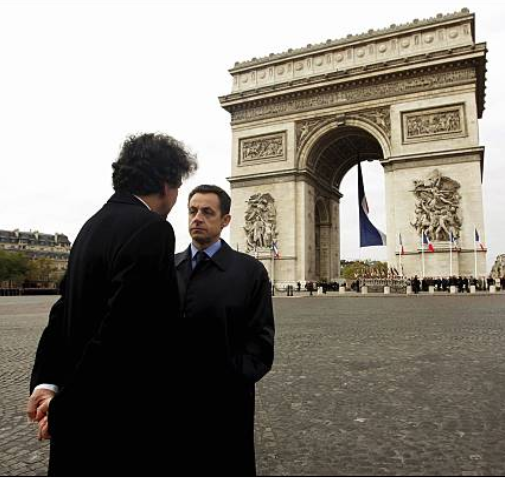
Thierry and Nicolas at the Armistice Day Ceremony in Paris (11 November 2005).
Early signs of a chill in the relationship?
"Breton opted to maintain his personal loyalty to Chirac and this seems to have led to a growing alienation from Sarkozy despite their ideological closeness."However, Breton did not permit the cracks in the personal relationship to become visible to the public eye. In January 2007 when the UMP elected Sarkozy as the party's candidate for the presidential election later that year, he rose to the occasion and delivered an endorsement speech during the official investiture held in Paris.
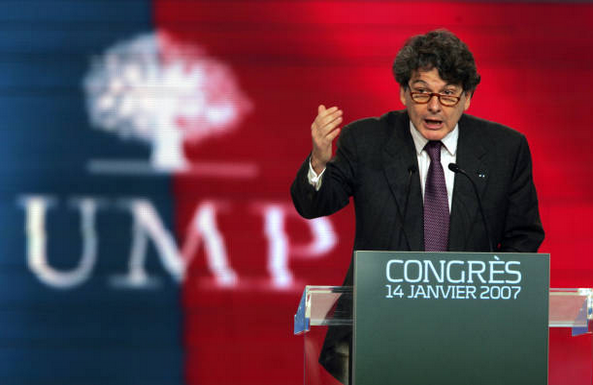
Breton giving an endorsement speech for UMP presidential candidate Sarkozy during the official investiture in Paris (January 2007)
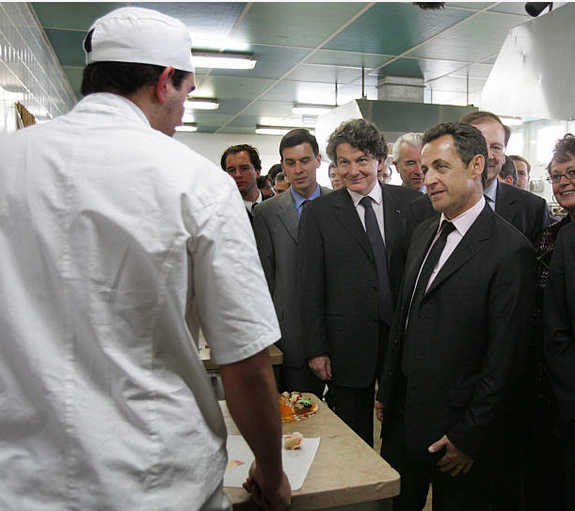
UMP presidential candidate Sarkozy accompanied by Breton during a visit to an educational centre in Joue-les-Tours (April 2007)
"Breton's close personal loyalty to Chirac made him "unreliable" in Sarkozy's eyes."Chirac recommended to Sarkozy that he keep Breton in his post as Minister for the Economy. But the President-elect was very much his own man and he decided not to follow the advice of his erstwhile mentor.
Breton's close personal loyalty to Chirac made him "unreliable" in Sarkozy's eyes. Another factor which counted against him was the perception that his political credibility was on the line because of the EADS insider trading scandal.
Noël Forgerard's "golden parachute" had become a prominent topic of public discussion during the 2007 presidential election campaign and Breton's involvement in this saga raised a number of awkward questions for the UMP.
Whatever Sarkozy's motives may have been, he decided to dispense with the services of his former colleague and so Breton's ministerial career came to an abrupt end in the summer of 2007.
"Whatever Sarkozy's motives may have been, he decided to dispense with the services of his former colleague and so Breton's ministerial career came to an abrupt end in the summer of 2007."But even after his official departure from the political parquet, Breton continued to play a significant behind-the-scenes role, for example by advising François Baroin when the latter was Minister of the Budget in 2010-2011.
They say that revenge is a dish best eaten cold and this is a view that Thierry seems to subscribe to. He waited almost a decade before settling accounts with Nicolas for having snubbed him in 2007.
In 2016 when Sarkozy published a book reviewing his term of office as President between 2007 and 2012, Breton went public with an excoriating indictment of Sarkozy's lack of economic rigour and his incompetent management of the financial crisis which occurred on his watch.
"In the next part we will look at Breton's close connections with another prominent French political figure, the "killer-shark" Christine Lagarde, former head of the IMF and now Director of the European Central Bank."In particular, Breton criticised the explosion in the French national debt during Sarkozy's term of office:
"We had a crisis management between 2007 and 2012 that was one of the worst of all European countries. France's debt has been increased by €600 billion. We fell way behind Germany."
In the next part we will look at Breton's close connections with another prominent French political figure, the "killer-shark" Christine Lagarde, former head of the IMF and now Director of the European Central Bank. ⬆